Constructive critique can be a tricky thing when it comes to giving feedback to a photographer you’re not happy with. It’s important to remember that the photographer is an artist and also someone you likely have a relationship with, which can add extra layers of complexity to the situation. Having the right approach to communicating your dissatisfaction can make all the difference when it comes to encouraging creative growth and maintaining healthy professional relationships. This guide will discuss how to tell a photographer you don’t like their photos respectfully and constructively.
Essential Things You Need To Tell Your Photographer Before Photo Session
Details, details, details
When it comes to photography, every detail is important. That’s why you need to communicate your preferences and needs clearly with the photographer before a photo session starts.
Start by talking about the style of photography that you want for the pictures. Do you prefer posed shots or candid ones? What type of mood do you want your photos to have? Do you need a photo shoot with multiple locations? Consider all of these factors before discussing the details of the shoot.

Once you’ve agreed on a style, talk about the specifics like angles and poses. Showing photos or illustrations can be helpful to ensure that both parties are on the same page when it comes to expectations. You should also discuss any props and wardrobe that will be used.
If you’re hiring a professional photographer, they may already have an extensive portfolio of work to show you. Take the time to look through it and make sure that their style is compatible with your vision.
By considering and discussing these important details before your photo session, you can make sure that it will be as successful as possible. That way, you’ll be able to capture beautiful photos that are true to your vision!
Any special or unique moments of your day?
When planning a photo session, it’s also important to consider any special or unique moments that you want to capture. This could be anything from a funny family inside joke to a meaningful exchange between two people.
Think about the activities and details of your day that are important to you and let the photographer know in advance. That way, they can plan for the best angles and poses to capture those moments.
If you have any special requests or unique ideas, be sure to communicate them clearly with the photographer beforehand. They may even have some helpful suggestions on how to maximize these moments.
Who your family members are
It’s also essential to let your photographer know who will be present during the photo session. Not only is this important for safety reasons, but it can also help the photographer prepare for different angles and poses that will flatter everyone in the photos.
Be sure to provide a list of everyone who will be partaking in the photo session, including the names and ages of all family members. If you’re having a larger group photo session, let the photographer know in advance so they can plan ahead for how to arrange everyone.

Venue restrictions
Be sure to let your photographer know of any venue restrictions that may limit their ability to take pictures. For example, some places have rules against flash photography or using props.
If any of these restrictions could affect the quality of the photos, be sure to communicate them beforehand so the photographer can make alternate plans if needed. That way, you can still end up with beautiful photos that are true to your vision.
An open mind
Above all else, it’s important to keep an open mind when communicating with your photographer. Listen to their suggestions and take the time to consider their ideas – they may have creative solutions that you hadn’t thought of before!
By keeping an open dialogue throughout the planning process, you can ensure that your photo session will go as smoothly as possible. That way, you’ll end up with beautiful photos that are true to your vision!
What Makes You Feel That You Look Bad in Photos?
One of the most common reasons why people feel like they look bad in photos is because their expectations are too high. Maybe you’ve seen a lot of beautifully airbrushed images that flood social media, setting unrealistic standards for how you should look in your own photos. It’s important to remember that those images are often heavily edited and enhanced.
Another reason why you might be unhappy with how you look in pictures is because of the angle. While you may love the way you look from a certain angle in the mirror, that same angle might not be as flattering when captured on camera. It’s all about finding the right angles that compliment your features and highlight your best attributes.
Finally, it could also be due to feeling nervous or uncomfortable in front of the camera. This can lead to tense poses and awkward expressions that don’t always translate well into photos. Relaxing and being comfortable in your own skin can make a significant difference in how you come across pictures. Practice posing, experiment with different facial expressions, and most importantly, embrace your natural beauty.
Remember, photographs capture a single moment in time and don’t define your worth or beauty. Confidence and self-acceptance are the key ingredients to looking and feeling great in photos. So, go ahead, strike a pose, and let your true personality shine through!

To help combat these issues, make sure to communicate your expectations clearly with your photographer and practice smiling and posing in front of a mirror before the photo session. That way, you can be more confident during the shoot and get beautiful photos that make you feel good about yourself [1]!
How to Tell a Photographer You Don’t Like the Photos?
Talk with the photographer politely
It’s important to remember that the photographer is a professional and has probably worked hard to capture the images they took, so be sure to approach them with respect. Let them know your feelings in an honest but polite way. Start by thanking them for their time and effort, then explain where you feel things did not measure up according to what was promised or expected.
It’s also important to be clear about what you’re unhappy with. Identify the specific elements of the photos that weren’t up to par and explain why they didn’t meet your expectations. You don’t need to go into great detail, but it helps if you can convey the reason for your disappointment.
Finally, make sure to offer suggestions and solutions for how to improve the photos. It’s helpful to provide possible ideas that the photographer can use to make the images better. By taking this proactive approach, you show your appreciation for their hard work while still making sure that you get the best possible results.
Ask to see all the photos that you took
Before you decide if the photos are not up to your standards, it’s important to get a full picture of what was taken. Ask the photographer for all their pictures from the shoot and take some time to review them on your own. This allows you to examine each photo in detail and get a better sense of how they turned out.

You may discover that there are several shots that you actually like and can use. Or you may find that the photos didn’t really come out as well as you had hoped. Either way, it’s important to see everything before deciding if the photographer needs to go back and take more pictures or not.
Define what is wrong and discuss possible revisions with the photographer
Once you’ve taken a look at all the photos, it’s time to decide which ones you’re unhappy with. Identify what specifically is wrong with each photo and then discuss possible revisions with the photographer. If they are willing to make changes, be sure to let them know what exactly needs to be done for you to be satisfied.
It’s also a good idea to give the photographer a deadline for when they need to get back to you with the revised photos. That way, they know how much time they have to work on them and you can be sure that you will get the images in time.
Be open to compromise
At times, it may not be feasible for the photographer to make all the changes you need. In such cases, it’s important to be open to compromise and find a solution that works for both of you.
For instance, if they can’t completely change the photo but can still improve it in other ways, then consider taking that option instead. Or if some shots didn’t turn out well but are still usable, then consider keeping them and working with the photographer to make some other adjustments.
By being open to finding a workable solution, you can ensure that both parties are happy with the end result.
Let the photographer speak
Remember to give the photographer a chance to express their point of view as well. Ask for their opinion on how they think the photos could be improved and listen to what they have to say. They may have some creative solutions that you hadn’t even thought of.
At the end of the day, constructive critique is all about finding a balance between your needs and the photographer’s expertise. By taking the time to understand one another’s perspectives, you can work together to create beautiful photos that are up to both of your standards [2].

What Not to Say to a Photographer?
Photographers spend countless hours perfecting their craft, honing their skills and creating beautiful images that capture special moments in time. That’s why giving constructive criticism to a photographer can be tricky – if not done correctly, it could come off as hostile or even insulting. Here are some helpful tips on how to give constructive critique without offending the photographer:
- Avoid making personal attacks or insults. Even if the photographer has made a mistake, focus on the action and not the individual.
- Ask questions rather than make judgments. To do this, it is important to try to understand what went into creating an image before critiquing it.
- Be specific about your feedback. Describe what you like or don’t like about an image, but try to avoid making sweeping generalizations.
- Offer helpful advice and suggestions rather than criticism. Reframe your critique as ways the photographer can improve their work, rather than pointing out mistakes.
- Show respect for the genre of photography and the photographer’s chosen approach. It’s easy to recognize when a photographer has put in effort, thought and care into the image – respect that.
- Keep it constructive. Remember, criticism should be focused on improving skills and creating better images rather than tearing down someone’s work.

FAQ
How do you tell a photographer you don’t like the pictures?
When it comes to giving constructive criticism, it’s important to be respectful and help the photographer understand where you’re coming from. Start by expressing your appreciation for their work and what you like about the picture. Then explain the elements that don’t helpfully match your vision or needs. Remember to focus on how you can improve the image instead of making negative comments about the photographer’s work. This will help you both have a positive and beneficial conversation about how to move forward with your vision and goals for the shoot.
How do you give productive feedback?
When giving constructive feedback, it’s important to be specific and provide examples of what could be improved upon or changed. This will help the photographer understand where you are coming from and what you would like to see to make the image fit your vision. Additionally, it’s important to be open-minded and listen to their suggestions as well. They may have ideas that could improve the image even further than what you had initially imagined. This type of collaboration between you and your photographer can go a long way in creating beautiful images that will last you a lifetime.
What to do if you don’t want to take your photos?
If you are unhappy with the final results of your photo shoot, it’s important to speak up and let your photographer know. Don’t be afraid to express your concerns and explain what you would like to see changed for you to feel comfortable sharing the images with others. A professional photographer should always be open to feedback and willing to make changes to the images so that you are satisfied with the end result. If they cannot make changes that meet your needs, it may be time to look for a new photographer in order to get the images you want.
What is post-production editing?
Post-production editing is the process of refining and retouching photos after they have been taken. This can include adding effects, adjusting colors and tones, cropping the image, and making other adjustments that enhance the overall look of the photo. Post-production editing allows photographers to make changes to photos after they have been taken in order to optimize them for a particular purpose or look. It is an important part of working with a professional photographer as it allows them to make sure the images meet your expectations.
What are different ways to improve photos?
There are many different ways to improve photos, depending on what you want the final image to look like. Some of the most common methods used by professional photographers include adjusting colors and tones, applying filters or effects, cropping, adjusting highlights and shadows, retouching, and sharpening. These are just a few of the ways that photographers can improve photos to achieve the desired result. Additionally, communication with the photographer is key to ensuring you get the perfect shot!
Can I make changes to my photos after they have been taken?
Yes! As mentioned before, post-production editing is an important part of the photography process and can help make sure that your photos look exactly how you want them to. Professional photographers often use post-production editing software to adjust colors, tones, apply filters or effects, and make other changes in order to optimize the photo for a particular purpose or look. This allows photographers to make changes after the photo has been taken and ensures that the image is exactly what you had envisioned.
How can a photographer help me get the shot I want?
A professional photographer can help you get the shot you want by listening to your vision and suggestions, as well as offering advice of their own. It’s important to remember that a good photographer will understand the importance of collaboration so they are able to take your input and combine it with their expertise in order to create an image that is perfect for you. Additionally, they can help you decide which post-production editing techniques would be best for the particular image and make sure that it meets your expectations.
What are some tips for working with a photographer?
When working with a photographer, communication is key! Talk to them about your vision for the shoot and let them know what kind of look you are going for. Additionally, be open to their ideas and suggestions as they may have concepts that could make the image even better than what you had initially imagined. It’s also important to express your concerns if you don’t like how a certain photo looks and let them know what needs to be changed in order for it to meet your expectations. Lastly, be sure to thank them for their hard work and dedication as this is key to developing a good working relationship.
What do I need to know before hiring a photographer?
Before hiring a photographer, it’s important to look into their portfolio and make sure that the style of photography they specialize in aligns with what you are looking for. Additionally, it’s important to ask them about their post-production editing process and make sure that they can deliver the look you want for your images. Lastly, be sure to have a clear plan of action in place before hiring so that both parties understand what is expected throughout the shoot and afterward. This will help ensure that the images turn out exactly how you envisioned them.
Useful Video: 7 PHOTOGRAPHY MISTAKES I see all the time
Conclusion
So, it can happen that you don’t like photos and must say about it. But this doesn’t mean that you should be rude and destructive in your critique. Constructive criticism is always the way to go when it comes to discussing photography with a professional photographer. As previously mentioned, photographers spend countless hours perfecting their art, so it’s important to respect their hard work by providing encouraging feedback to help them grow and improve. Make sure that any critiques or suggestions that you make are specific, constructive, and clear. Doing this will help the photographer understand your point of view while still respecting their work. In turn, this can lead to a better relationship between the two of you in the long run.
References
- https://reneerobynphotography.com/why-do-i-look-bad-in-photos/
- https://wildromanticphotography.com/melbourne/tips-advice/how-do-you-tell-a-photographer-you-dont-like-the-photos/

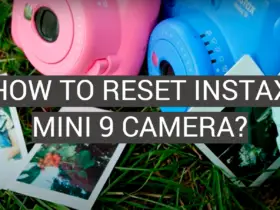
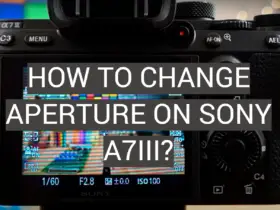

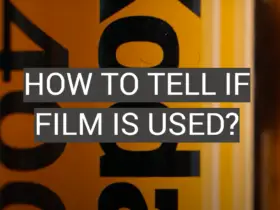

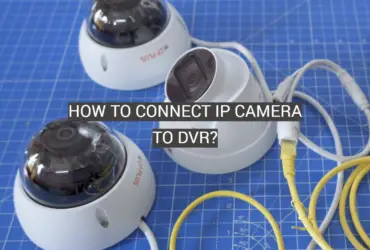


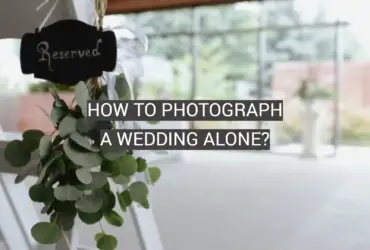
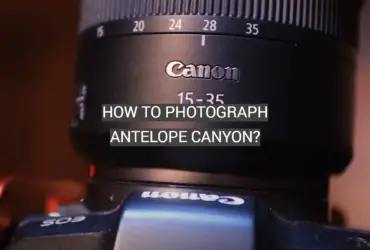
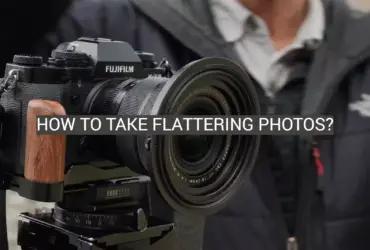
Leave a Reply